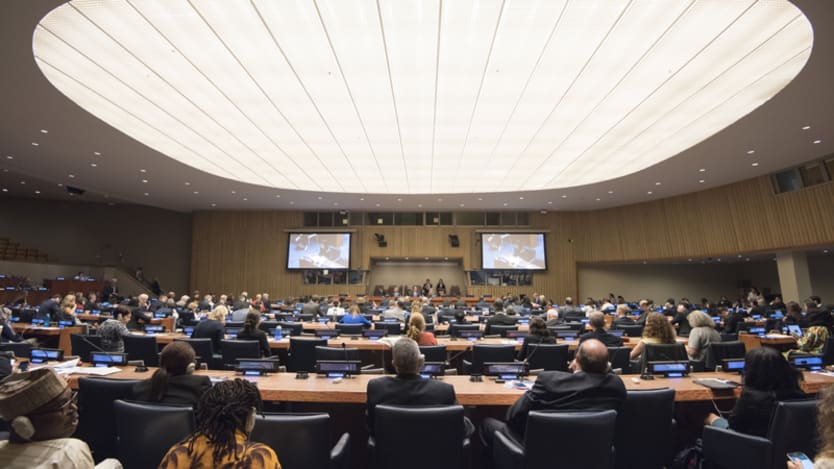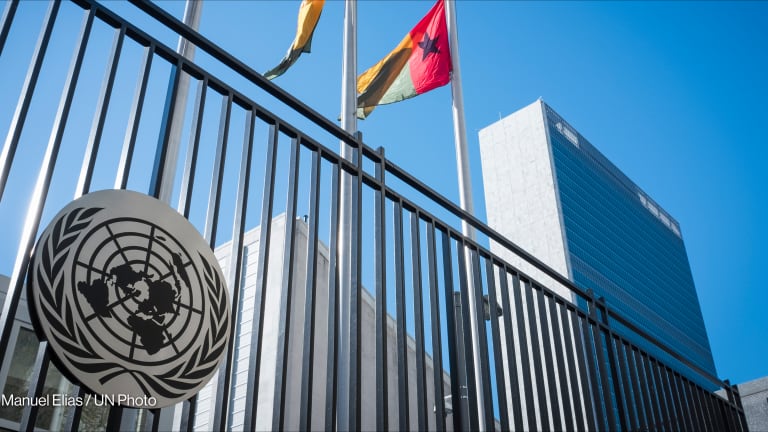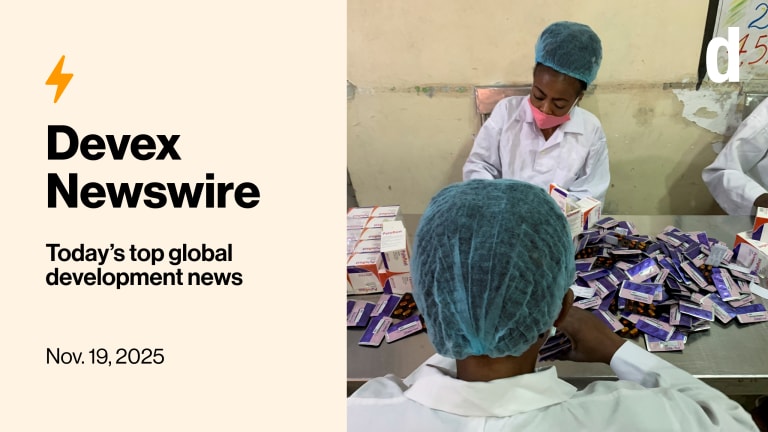
Twin summits at the United Nations in New York this week put refugee and migrant issues in the spotlight, but heads of state aren’t the only ones discussing their role — the private sector is also weighing its response and making commitments.
While some companies feel a moral imperative or responsibility to act, the sheer size of the refugee community also represents a clear business opportunity.
If the world’s approximate 65 million forcibly displaced people, including the nearly 22 million refugees, joined together, they could form one of the largest countries represented at the United Nations annual General Assembly debate this week. This nation of stateless people would also have an exceptional rate of population growth, as about 34,000 people are forced from their homes every day, according to the U.N. refugee agency.
Without their own nation, migrants, and other forcibly displaced people, continue to lack almost all of the rights, like the ability to legally work or receive an education in a host country, which could help ease their resettlement process.
Political agreements signed this week such as the New York Declaration, which calls for the protection of migrants’ and refugees’ rights, and new partnerships to address the growing number of displaced persons have taken center stage at this year’s General Assembly meeting. The spotlight on migration is key, said Leonard Doyle, a spokesperson for the International Organization for Migration.
“Of course it [the New York declaration] could have been stronger… but as far as we are concerned this is a high watermark for the U.N. Bringing migration into the fold of the U.N. is extraordinary,” explained Doyle in an interview with Devex. He noted that while the agreement lacks specific quotas for refugee resettlement, for example, it is pushing migration onto the global agenda.
But beyond politics, companies, who haven’t alway been engaged in these issues, are also gathering to strategize on innovative, technology-driven ways forward. In fact they had their own duo of events to discuss the issues: a private sector forum on the refugee crisis, hosted by the U.N. Global Compact on Monday, and a private sector forum on migration and refugees at the Concordia Summit Tuesday.
“If we don’t do something, it will set the 17 [Sustainable Development Goals] completely off,” Carolyn Miles, Save the Children’s chief executive, told the high-level gathering of political and business leaders at the U.N. Global Compact meeting.
A key takeaway from the U.N. event was that there is a huge imperative and opportunity for business to act, but resources need to be mobilized at much greater scale to have any significant impact. Lack of sufficient action could also fail to curtail the growing number of people displaced by conflict, persecution and human rights violations — a trend that has been magnified by the 5.8 million people displaced since 2014 alone.
One notable announcement was billionaire investor George Soros’ commitment to invest $500 million — the largest single amount announced — for migrants and refugees, partnering with the UNHCR and the International Rescue Committee.
This came as 50 companies, including Johnson & Johnson and Airbnb, collectively pledged more than $650 million at the U.N.
“For these companies to put themselves out there on behalf of the most vulnerable citizens in the world is not just an extraordinary gesture of compassion, but I think it’s also a recognition that, for those of us who benefit from this increasingly integrated global society, we can only sustain what we do to the extent that we’re making sure that the least of these, the most vulnerable among us, also have hope, also have opportunity,” U.S. President Barack Obama said of the announcement at a CEO roundtable event Tuesday.
Obama’s call to action spurred businesses to make commitments, and his sentiments were echoed by others who also discussed the need for private sector involvement.
“There’s a recognition that the scale of this crisis requires all hands on deck. Not tapping the talent would be a waste … the private sector has to come into play,” said Ziad Haider, the U.S. State Department’s special representative for the commercial and business affairs at the Concordia Summit.
Various companies, including Uniqlo, Deloitte and Vodafone, presented plans and programs at that offer some solutions — playing into the general theme this week of innovative, technological approaches to the migration crisis. A representative from Vodafone described its tablets, sometimes called a “school in a box,” that it aims to expand to reach up to 3 million children in refugee camps by 2020.
By that time, UNHCR hopes to bring connectivity to 90 percent of the refugee population, according to Kelly Clements, the UNHCR deputy high commissioner. Only one in six refugees are now located in areas with 3G access.
A host of refugee-focused apps — developed by governments in partnership with tech companies and civil society organizations — were also outlined at both Concordia and the U.N. Global Compact meeting. They include mobile services and open data platforms to transmit information related transportation, medical care, accommodation and job opportunities for displaced persons.
Those apps are an example of a shift in how companies are looking at these challenges and their role as not just providing cash but using their business and expertise. For example, UPS, the global logistics company, coordinated 350 humanitarian shipments across 50 countries last year, the company’s chief executive David Abney said this week.
More refugee services are of course needed, both within these industries and across new sectors.
Recognizing the opportunities for the private sector to service refugee needs requires a “change in the public discourse” in which businesses take the rights of children and refugees into account, said Miles, of Save the Children.
That may be helped along as businesses increasingly recognize that refugees represent significant business opportunities.
Check back on our coverage of New York Global Dev Week here, follow @Devex and join the conversation using #GlobalGoals.
Read more stories from the New York #GlobalDev Week:
► Refugees, climate change, aid and superbugs: Can solutions be found in New York?
► With CGI coming to a close, what's next for the Haiti Action Network?
► 4 takeaways from Social Good Summit 2016









